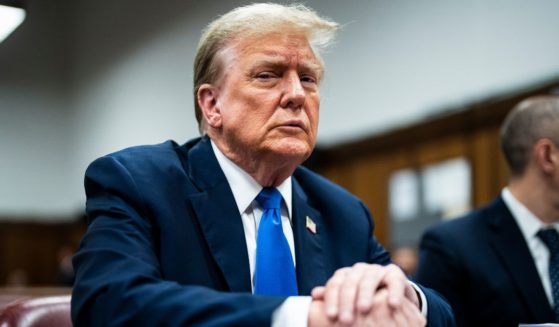China Fires 'Precision Missile Strikes' and Encircles Taiwan One Day After Pelosi's Departure
Taiwan bore the brunt of China’s fury over the visit of House Speaker Nancy Pelosi with a series of missile strikes and military exercises Thursday designed to show what it could do to the island should it wish.
Pelosi left Taiwan on Wednesday after a visit that became a flashpoint in relations among the United States, China and Taiwan.
China claims the self-governing island is its property and speaks of its “reunification” with the mainland. Taiwan, 100 miles off the coast of China, became the refuge of the nationalist government after it lost China’s civil war in 1949. It has since grown into a thriving democracy with a vibrant economy, largely protected from China’s wrath by U.S. military aid.
Although China threatened the United States in the days before Pelosi’s visit, its aftermath was marked by exercises that appeared to simulate a blockade of the island as well as other affronts.
The PLA began a three-day exercise around Taiwan.#China #Taiwan pic.twitter.com/FyTJkPNSF1
— 301 Military (@301military) August 4, 2022
“Long-range armed live fire precision missile strikes were carried out on selected targets in the eastern area of the Taiwan Strait,” the Eastern Theater Command of the People’s Liberation Army, the ruling Communist Party’s military wing, said in a statement, according to Fox News.
“The expected outcome was achieved,” the statement said.
“The entire live-fire training mission has been successfully completed and the relevant air and sea area control is now lifted,” China said, according to CNN.
Taiwan reported that 11 Chinese missiles landed north, south and east of Taiwan on Thursday afternoon local time.
Taiwan’s Defense Ministry called China’s actions “irrational behavior” and said it was observing, but not responding, to the Chinese show of force.
We condemn this irresponsible behavior & urge the international community to do the same. We’ll work with friends & partners to maintain the status quo & ensure a free & open #IndoPacific. (2/2)
▶️READ https://t.co/wDmYehgcLO
— 外交部 Ministry of Foreign Affairs, ROC (Taiwan) ?? (@MOFA_Taiwan) August 4, 2022
“The exercises [are] focused on key training sessions including joint blockade, sea target assault, strike on ground targets, and airspace control operation, and the joint combat capabilities of the troops got tested in the military operations,” the PLA’s Eastern Theater Command said in its statement.
Talk of a blockade was aimed more at what China could do than the current confrontation, one commentator said.
“The official announcement [of the blockade] refers to just a few days, which would make it hard to qualify it on practical terms to a blockade,” Alessio Patalano, professor of war and strategy at King’s College in London, said, according to CNN.
“During the period of time in question, ships and aircraft will likely reroute to avoid the area, but this is one primary objective of the chosen locations: create disruption, discomfort, and fear of worse to come,” he said.
But China might have its sights on some objectives, such as ending any observance of what’s informally called the Median Line that divides the Taiwan Strait in half, according to The Washington Post.
In 2020, China — which has grown more bellicose year by year in its talk about Taiwan — said the informal boundary did not really exist.
“Beijing may use the Pelosi visit as an opportunity to change the status quo in the Taiwan Strait,” said Amanda Hsiao, senior China analyst at the International Crisis Group, according to the Post.
“It’s quite clear they’re going to be simulating how they might blockade Taiwan in the future,” said M. Taylor Fravel, director of the security studies program at the Massachusetts Institute of Technology.
Ivan Kanapathy, a former deputy senior Asia director on the White House National Security Council, said China’s calculations could falter.
“If military planes come within 12 nautical miles, it’ll be hard to ask Taiwan to exercise restraint. They would be well within their rights to shoot at something within their territory,” he said.
Truth and Accuracy
We are committed to truth and accuracy in all of our journalism. Read our editorial standards.












